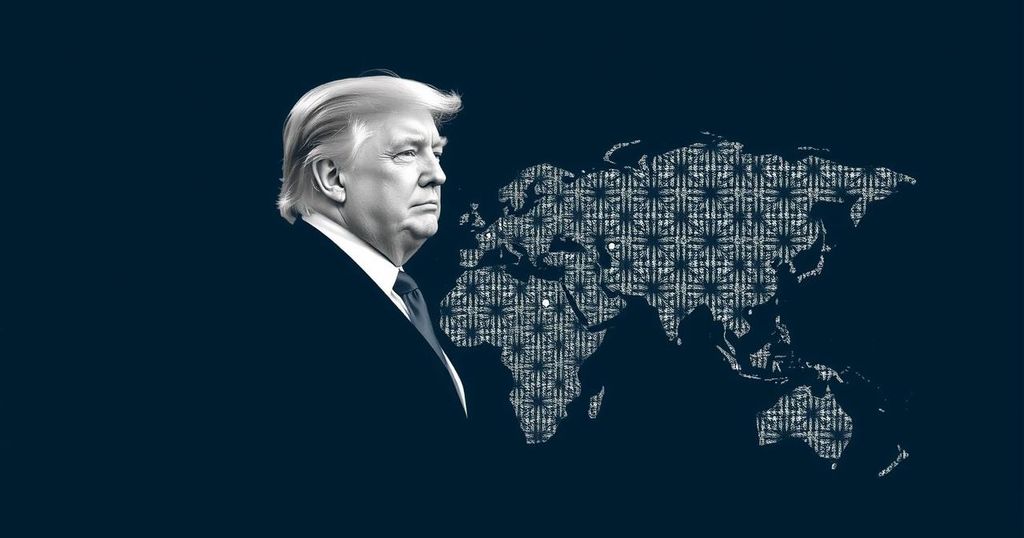The Implications of Extreme White-Wing Politics in the Upcoming U.S. Elections

The U.S. presidential elections on November 5, 2023, could solidify extreme white-wing politics, raising global concerns. Candidates Kamala Harris and Donald Trump exhibit alarming stances on foreign policy, immigration, and environmental issues, suggesting potential for increased geopolitical tensions regardless of the election outcome.
The upcoming presidential elections in the United States on November 5, 2023, are poised to solidify the dominance of extreme white-wing politics, raising concerns about their impact both domestically and globally. As election day approaches, candidates are intensifying their appeals to American voters. However, many observers question whether this election indeed merits the label of being the most significant in a generation. The gravity of the election is underscored by the United States’ status as a leading global power with vast influence. With over 160 million registered voters, the implications of this election extend well beyond American borders, capturing the attention of regimes throughout North America and Europe. At the forefront are two principal candidates: Vice President Kamala Harris, representing the Democratic Party, and Donald Trump, the former president, backed by the far-right wing of the Republican Party. Despite the differing party affiliations, both candidates exhibit alarming tendencies towards extremist views, particularly regarding U.S. foreign policy in conflict zones like Gaza and Lebanon. Vice President Harris’s campaign has expressed a desire for the ongoing violence to cease, and she has reportedly threatened to halt arms supplies to Israel should it employ starvation tactics in its military campaigns. Nevertheless, her aides have suggested that such statements may lack substance, as she is likely to continue military support for Israel, which has a troubling history regarding its treatment of Palestinians and violations of international law. Conversely, Trump’s Republican Party is often viewed as aligned with radical Christianist militancy that fervently supports the Israeli cause, even amidst concerns over its militaristic aggression and human rights abuses. Both candidates share a troubling dismissal of international law and the findings of various human rights organizations regarding Israel’s actions in Palestine. Further complicating matters are both candidates’ stances on immigration, reflecting a longstanding xenophobic tradition within the United States. While the nation prides itself on being a melting pot, it continues to resist the influx of newer immigrant populations, particularly from neighboring countries, who face systemic exploitation and discrimination. Additionally, both Harris and Trump have demonstrated a reluctance to engage with international treaties that address issues like nuclear disarmament and climate change, favoring domestic fossil fuel initiatives that contradict global efforts to combat ecological degradation. The irony lies in the candidates’ portrayal of the United States as a global leader, particularly at a time when substantial portions of the American populace remain uninformed about global affairs.
The article highlights the significance of the 2023 U.S. presidential elections, positing that the candidates’ extreme positions on foreign and domestic policies reflect a broader trend of rising white-wing politics. It underscores the potential global consequences of the election outcome, particularly regarding issues such as military support for Israel, immigration policy, and environmental degradation. The analysis implies that regardless of who prevails, the election could exacerbate tensions both within the Caucasian bloc and globally, leading to further destabilization and conflicts.
In conclusion, the imminent U.S. presidential elections could effectively entrench extreme white-wing ideologies within American politics. Both major candidates’ positions on key issues such as international law, immigration, and climate change reflect a troubling trajectory that could have dire implications not just for the U.S., but also for the global stage. As observers watch closely, there remains a palpable concern about the potential for this electoral cycle to intensify existing geopolitical tensions and undermine international norms.
Original Source: www.aljazeera.com






